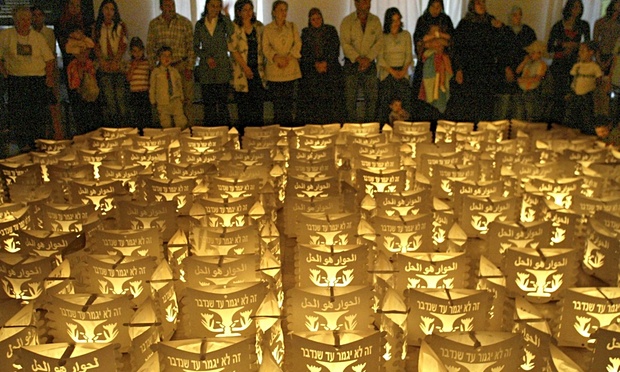If progress towards peace has stalled, it is not because the Israeli people have lost the will to make bold decisions. They need constructive international engagement, not criticism
his month I return to Israel after four years as its ambassador in the UK. I’ve been privileged to witness an extraordinary expansion in our bilateral cooperation, and I’ve also had many conversations about Israel and the prospects for peace. One troubling and recurrent theme has been that the main thing Britain can do to promote peace in the Middle East is to exert pressure onIsrael.
On hearing this, I am reminded of the fable of the north wind and the sun. In their competition, the north wind fails to blow the cloak off a passing traveller no matter how hard it blows; yet the sun succeeds, by warming the traveller’s surroundings, and encouraging him to take off the cloak himself.
Recent years have yielded no shortage of wind. Resolutions and boycott campaigns have all attempted to force Israel’s hand. Yet the response by Israel’s people has been emphatic: twice re-electing the government these efforts have sought to censure.
Standard-bearers for the pressure camp routinely claim that a conciliatory approach only reinforces the status quo. But in fact, the Israeli people’s boldest steps towards peace have taken place when the international community has been most receptive to their concerns.
Israel’s historic peace treaty with Egypt was made possible by US guarantees on security and continued oil supply. Israel’s withdrawal from southern Lebanon was premised on the UN’s commitment to deploy peacekeeping forces in the area and prevent terrorist aggression against Israel by Hezbollah. Its disengagement from Gaza followed international assurances that Hamas and other terror groups would be prevented from gaining access to arms via the Sinai.
If progress towards peace has stalled, it is not because the Israeli people have lost the will to make bold decisions. Polls consistently show a majority want a lasting peace with the Palestinians.
Yet those same polls show Israelis are also sceptical about the possibility of realising such a peace. In part this scepticism relates to the ability of the international community to live up to its assurances. UN peacekeepers have not prevented the rearming of Hezbollah and its attacks on northern Israel. Nor has the international community been able to stop the smuggling of weapons to Hamas in Gaza, or, as Israeli intelligence services recently disclosed, its support for Islamic State terrorists in Sinai. Even with regard to reconstruction in Gaza, while Israel has transferred over a million tons of building supplies to date,reconstruction remains hindered by the failure of international donors to meet their aid pledges, and by the internal Palestinian Fatah-Hamas power struggle.
As much as Israelis want peace, when they look at the fate of international assurances in Gaza, Lebanon and elsewhere in the region, they cannot help but ask what is to stop an evacuated West Bank turning into yet another launch pad for attacks against Israel, but this time only miles from Jerusalem and Tel Aviv.
In a region undergoing such tectonic changes, with ungoverned spaces increasingly dominated by brutal jihadist extremists and Iranian proxies, Israelis are perplexed that the song sung by international voices in relation to their corner of the region remains the same. Israelis have come to recognise that new regional realities must mean new thinking, including embracing opportunities to cooperate with states with which we have never worked before. Yet away from our region, debate on the peace process continues as if Israelis and Palestinians exist in a vacuum.
The value of emulating the sun rather than the wind is not just about recognising the concerns of the Israeli people. It is about seeing the reality that exists today; not the reality of 10 years ago, or of 1948. The resilience of Israel’s peace treaties with Egypt and Jordan shows how transformative constructive international engagement can be. But the attempt to change the Middle East by brute pressure will only ever be so much hot air.









